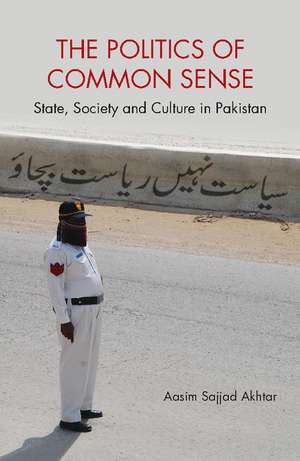The Politics of Common Sense: State, Society and Culture in Pakistan
Autor Aasim Sajjad Akhtaren Limba Engleză Hardback – 31 ian 2018
Preț: 578.48 lei
Preț vechi: 649.97 lei
-11% Nou
Puncte Express: 868
Preț estimativ în valută:
110.69€ • 115.58$ • 91.40£
110.69€ • 115.58$ • 91.40£
Carte tipărită la comandă
Livrare economică 15-29 aprilie
Preluare comenzi: 021 569.72.76
Specificații
ISBN-13: 9781107155664
ISBN-10: 1107155665
Pagini: 212
Dimensiuni: 157 x 235 x 19 mm
Greutate: 0.41 kg
Editura: Cambridge University Press
Colecția Cambridge University Press
Locul publicării:New York, United States
ISBN-10: 1107155665
Pagini: 212
Dimensiuni: 157 x 235 x 19 mm
Greutate: 0.41 kg
Editura: Cambridge University Press
Colecția Cambridge University Press
Locul publicării:New York, United States
Cuprins
Preface; Acknowledgments; 1. Introduction; 2. The structure of power 'from above'; 3. Accumulation in practice; 4. The many faces of Islam; 5. The nation that never became; 6. The subordinate classes: beyond common sense?; 7. Epilogue: what does a counter-hegemonic politics look like?; Glossary; Bibliography; Index.
Notă biografică
Descriere
This work analyses the transformation of Pakistan's structure of power during the military dictatorship of General Zia ul Haq.
